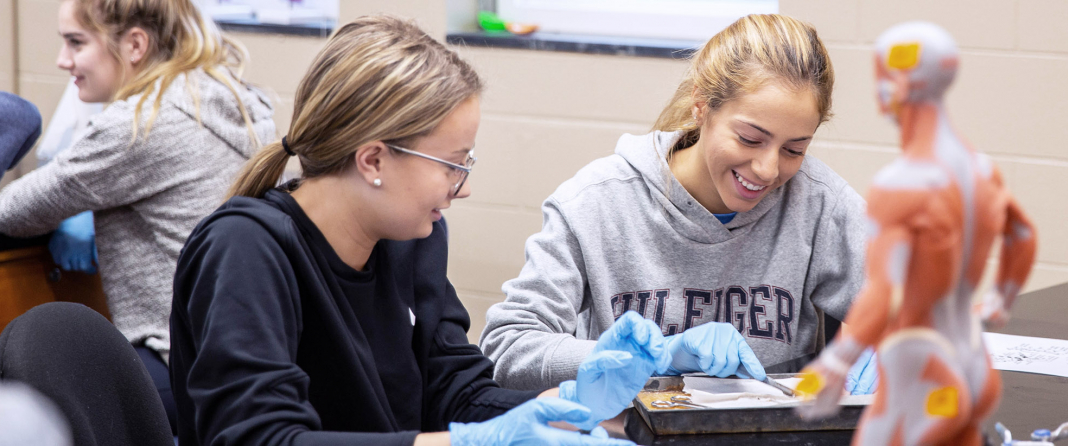Overview
Put your love of science to work by earning a bachelor's degree in General Science from Trevecca!
The General Science major seeks to prepare graduates who have a breadth of basic knowledge in biology, chemistry, and physics. The major emphasizes both a broad classroom experience and the development of a wide range of laboratory skills. Students pursuing a general science major interact closely with faculty from a wide range of disciplines, benefitting from their diverse experiences and training. To complete the major, eight credit hours are required in each area of specialization (biology, chemistry and physics), and an additional eight credit hours of science classes are required at the 3000 or 4000 level.
Faculty
News
Core Classes
Seminar in Biology
BIO 4335
Includes project and papers presented and reported to the science faculty and science majors. To be taken during senior year.
Course Hours: 1
Seminar in Chemistry
CHE 4335
Consists of projects and paper presented and reported to the science faculty and science majors.
Course Hours: 1
Seminar in Physics
PHY 4335
Consists of projects and paper presented and reported to the science faculty and science majors.
Course Hours: 1
Science Philosophy and Practice
SCI 1050
An introduction to the methods used in the practice of science and the philosophies and standards that guide the scientific community as it seeks to advance the understanding of the natural world. Topics will include the process of science, scientific ethics, analysis and presentation of the results of scientific studies, reading and writing peer-reviewed scientific papers, and careers in science. Lecture.
Course Hours: 1
Introduction to Computer Technology for the Sciences
SCI 2150
A hands-on introduction to computer-based measurements, automation, and graphical programming for the sciences. The LabVIEW graphical programming environment will be introduced and used to write software applications that collect, display and analyze experimental data. Automated experiments in the areas of biology, chemistry and physics will be designed and implemented. Topics such as sensors, signals, data acquisition, error analysis, and noise will be explored. The use of standard office spreadsheet, word-processing, and presentation software for scientific data analysis and reporting will also be emphasized. Lecture and Lab. Fee charged.
Course Hours: 3
Precalculus
MAT 1310
A brief review of polynomial and rational functions and systems, and of exponential and logarithmic functions. Study of trigonometric functions, graphs, formulas and identities; inverse functions, including inverse trigonometric functions; solutions to systems of equations; and polar coordinate systems.
Course Hours: 3
Calculus I
MAT 1510
A study of Cartesian and polar coordinates, parametric equations, vectors and vector-valued functions in 2 and 3 dimensions, limits, differentiation of functions with applications, integration of functions with applications, Taylor polynomials, and series. It is strongly recommended that students take PHY 2110 and PHY 2120 concurrently with MAT 1510 and MAT 1520, respectively.
Course Hours: 4
Statistical Analysis for the Sciences
MAT 1350
An introductory statistics course with an emphasis on exploratory and inferential techniques for analyzing and modeling data. Topics include descriptive statistics, regression, probability distributions, confidence intervals, hypothesis testing and experiment design. Statistical software is implemented throughout the course.
Course Hours: 4
Overview
Put your love of science to work by earning a bachelor's degree in General Science from Trevecca!
The General Science major seeks to prepare graduates who have a breadth of basic knowledge in biology, chemistry, and physics. The major emphasizes both a broad classroom experience and the development of a wide range of laboratory skills. Students pursuing a general science major interact closely with faculty from a wide range of disciplines, benefitting from their diverse experiences and training. To complete the major, eight credit hours are required in each area of specialization (biology, chemistry and physics), and an additional eight credit hours of science classes are required at the 3000 or 4000 level.



